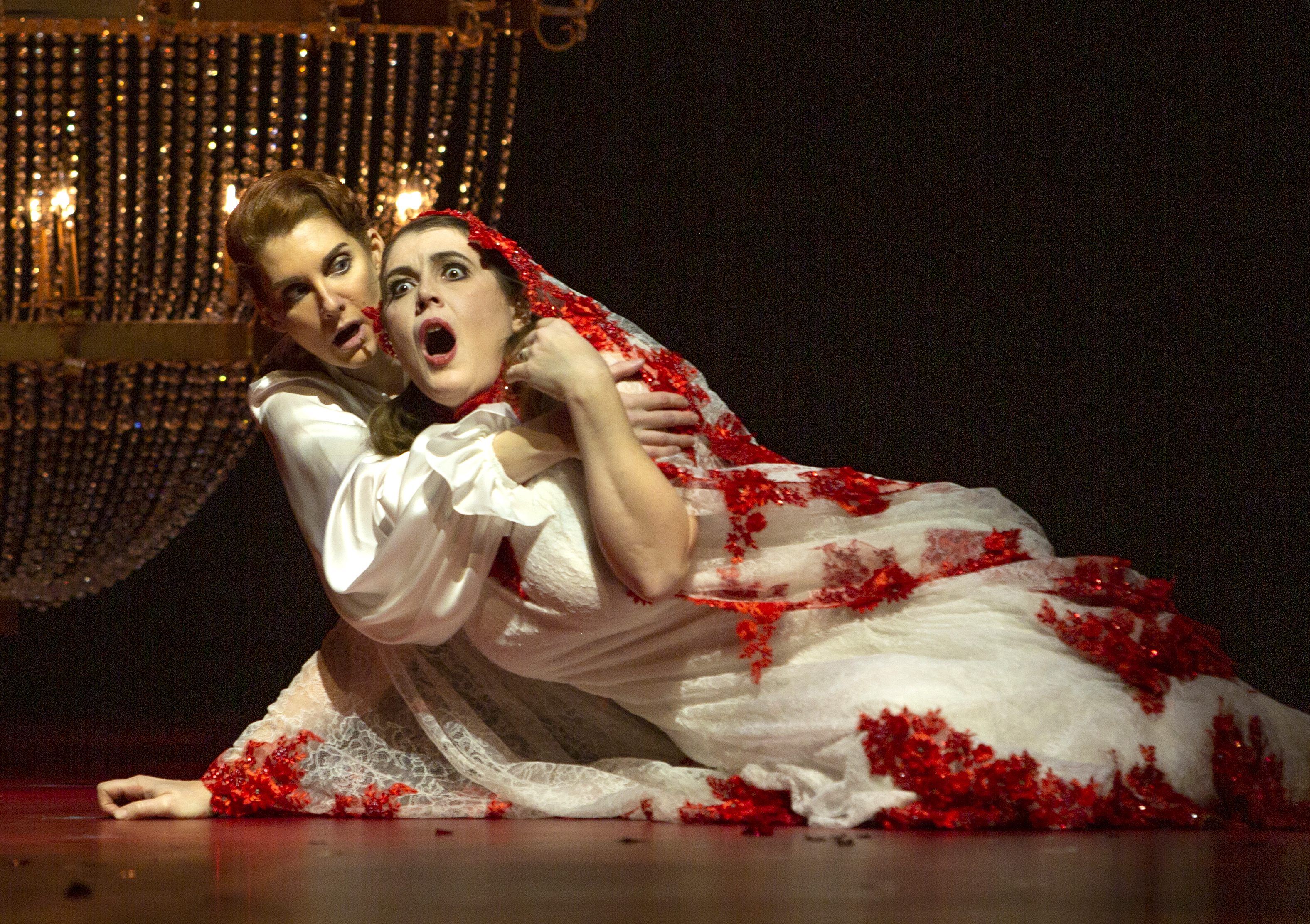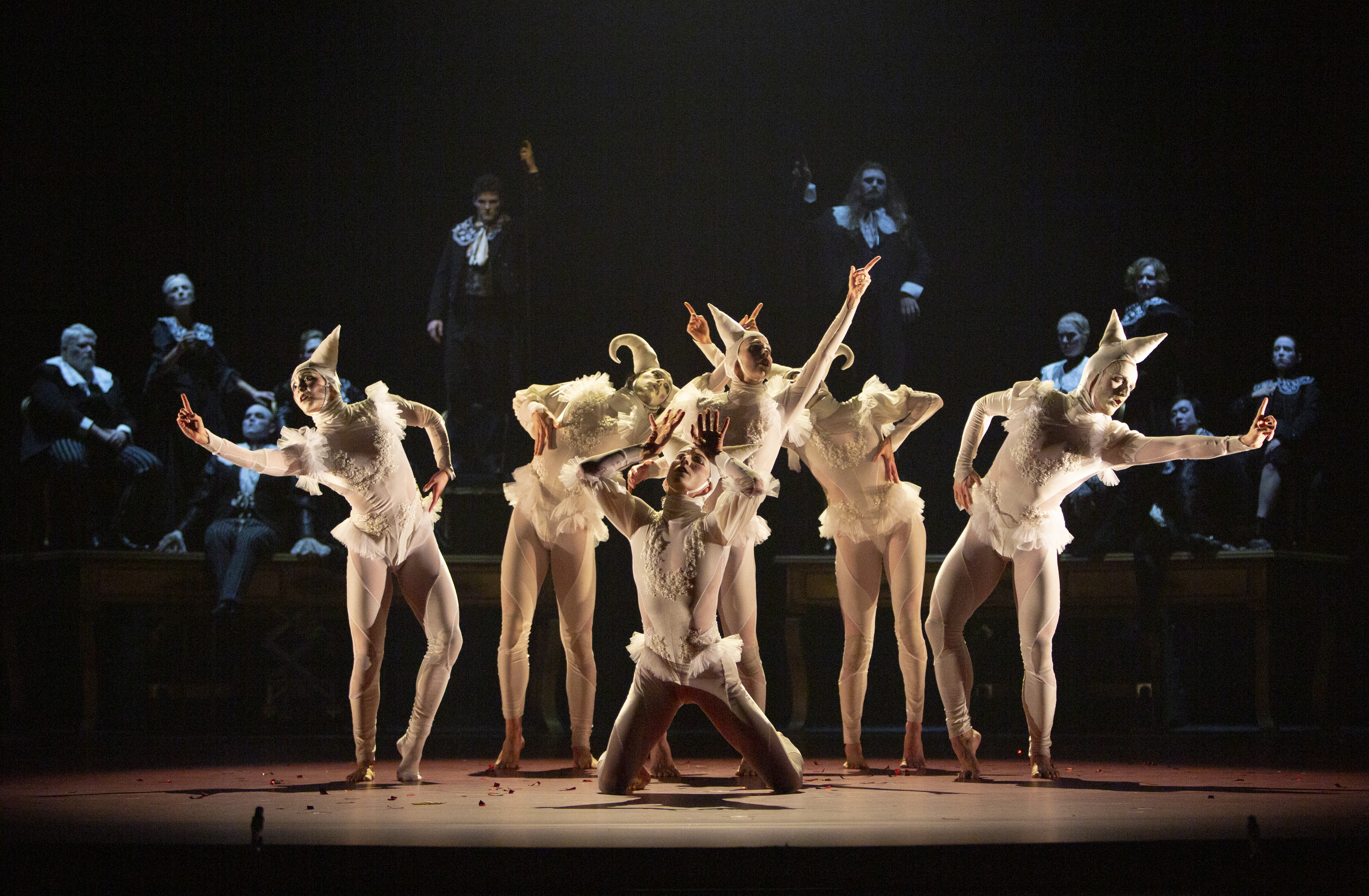
Whether or not the 1762 operatic premiere of the Orfeo ed Euridice love story was meant to be humorous is difficult to know. Vancouver Opera’s 2021 iteration at The Queen Elizabeth Theatre, however, married narrative drama with somatic comedy to reach a production at the threshold of divine entertainment.
The story is an old one; the Vancouver performance elevates the classic Greek myth with contemporary dance and production design both bold and simple. The tale tells of Orfeo, a masterly poet and artist, who travels to the Underworld to resurrect his dead lover, Euridice. The grief of Orfeo’s loss is profound, he cannot carry on with the pain that death brings. Then Amore, goddess of love, invites him to journey to Hades to guide Euridice back amongst the living—under one condition: he must not look at her until they’ve reached Earth. Here, the script flips, as the ghost of Euridice crumbles in grief from her lover’s averted gaze—how intolerable to be alive and unseen! Must she die twice, once in life, once in death? Better, anyway, than the pain that life brings.
The melodrama of life-or-death romance hinges on the absurd—but isn’t so reality? The idea that love can make fools of us all is timeless, sure. Tipping the story into camp territory is the work of director and choreographer Idan Cohen and a dynamic troupe from Ne. Sans Opera and Dance and The Dance Centre. The monochrome motley of Harlequin dancers pantomime setting, tone, action, and narrative—including the rote journey to the Underworld—with hardly a subtle nod to commedia dell’arte. Their continued presence throughout the opera creates a sublime spectacle of movement and glittery expression against the moody backdrop of Hades’ sparsely furnished corners and the overwrought orchestral grief of two lovers, separated.

Orfeo, played by mezzo-soprano Mireille Lebel (following a 19th century tradition of females singing the star male role) is a humble belter of vocals, contributing to the “noble simplicity” that was intended by this opera in the first place. Composer Christoph Willibald Gluck wrote Orfeo ed Euridice as a “reform” opera in the 1700s to combat the overtly serious nature of operas of the time. The Vancouver Opera’s performance also stars soprano Krisztina Szabó (Euridice), who pushes vocals of no laughing matter to heights that parallel the irrationalities borne of romance. Amore, goddess of love, played by soprano Mireille Asselin, is full of smirks and sarcasm, keeping the audience just slightly suspicious of her kindness.
Artfully restrained set design speaks to a gothic Marie Kondo essentialism—a single chandelier and parted floor-to-ceiling curtains for the nice side of hell, an Addams Family-esque chorus poised atop various pieces of dark furniture for the bad side. Lighting design is powerful, evocative, pushing the dimensions of the stage to measurements far beyond its scope. Indeed, creating the space for two worlds to collide. Costumes designed by Evan Clayton dazzle in the gloom. The earthen and the diabolical are distinct by the usual dark versus light tones—scarlet, for Amore—and glittery versus matte, but spirits of all realms are draped in gauzy material, or tight mesh, or cutout bodices, or rich, form-fitting textiles. All souls fare well in fashion.
The third act lingers in its final venture. Orfeo and Euridice reunite. Amore’s sass is only a grain of salt, not suspect—we’ve been through hell, after all, it couldn’t get worse!—and her flourishes of movement and expression, of tone and attitude, keep the audience hanging on ‘til the very end. A heavy downpour of gold glitter does nothing to avert the eyes, either.
Visit Vancouver Opera’s website to learn about their exciting new season!
– Dayna Mahannah
